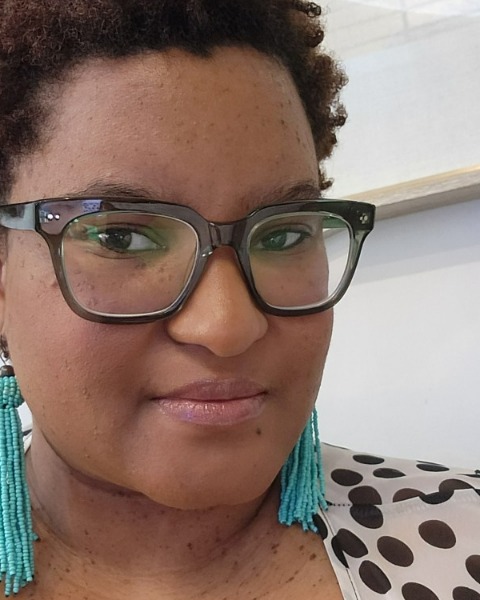Advocacy and Policy Change
Telling the Story of Parent Power: Evaluating Transformative Advocacy to Center Parent Voice
-

Mariah Brothe Gantz
Senior Associate
Center for Evaluation Innovation
Annandale, Virginia, United States -
JC
Julia Coffman, n/a
Co-executive Director
Center for Evaluation Innovation, United States -
MN
Melly Ntalu
Executive Assistant
Center for Evaluation Innovation, United States -

Amber Sansbury
Research Fellow
Center on the Ecology of Early Development, United States -
AM
Angela Masden
Parent Community Organizer
PlayCousins Collective
Chair(s)
Facilitator(s)
Presenter(s)
Location: Grand Ballroom 7
Abstract Information: In the policy advocacy process, community members who are impacted by policies and systems are often mobilized by professional advocates to tell their compelling stories to decision-makers to influence strategy. They less frequently, however, are engaged for their expertise when building the advocacy agenda or strategy itself. This approach of mobilizing communities for storytelling can be extremely impactful in getting to a policy win. But it reinforces inequitable power dynamics among advocates and leaves the opportunity to build community leadership and power off the table. If advancing equity through advocacy is the goal, measures of success must include attention to what was won (the win should help address racial disparities and their root causes) and how it was won (communities impacted by the problem advocacy is intended to address should be centered in the work). As part of a broader and longer-term work with philanthropy in considering their role in supporting advocacy ecosystems to advance equity, we will explore in this session what we are learning in our work about advocacy that builds power. We will bring to bear our work on a formative evaluation that the Center for Evaluation Innovation and the Center on the Ecology of Early Development has conducted in partnership with the Robert Wood Johnson Foundation (RWJF). We will focus on the core question: What changes in how evaluators approach our work as part of the advocacy ecosystem when we are focused on power as the ultimate outcome, in addition to policy and systems change wins?
Relevance Statement: When funding advocacy strategies, many funders must consider supporting an ecosystem of different actors who work together to achieve a common goal. That may include, for example, professional policy advocates, communications firms, or formal coalitions and alliances, and importantly, funders. For advocacy to build power, organizers and communities have to be part of that ecosystem, and they have to be centered in it. All other advocacy ecosystem actors, including funders must be in relationship with communities and organizers in ways that center community voice and power. In many advocacy ecosystems, professional policy advocacy organizations hold the most power. They are usually established 501(c)3 organizations with relationships to funders. They do a lot to support the advocacy process, such as conducting policy analyses and research, leading the development of policy agendas and campaigns, and forging relationships with decision-makers. Communities impacted by the policies or systems tend to have comparatively less power in these ecosystems. In part, this is because philanthropy has not historically been a strong supporter of community organizing groups. It is also because the actors that do hold power, are not sharing it. The result is that while communities may be mobilized to share their experiences or stories with decision-makers, they have little say in policy agenda development and are deployed to support an agenda after it has already been decided. Funding non-organizing advocacy actors to move toward centering communities in their work is a critical part of power building. Advocacy funders can leverage their influence to help shift these dynamics. The Robert Wood Johnson Foundation, for example, is supporting state early care and education advocacy ecosystems to shift toward building parent power. Most of the ecosystems had previously been connecting to parents through two avenues—conducting research to learn about parent experiences as an input into their policy advocacy strategies and mobilizing parents to support campaigns. With this approach, professional advocates remained centered and retained most power. The main expected “deliverable” of RWJF’s funding was that state ecosystems shift power toward parents in visible ways. The Center for Evaluation Innovation and the Center on the Ecology of Early Development conducted a formative evaluation that revealed most states shifted power by making structural changes in who participates in ecosystems and power dynamics between ecosystem members. To engage parents directly, state advocates either hired parent organizers or strengthened partnerships with existing parent-focused organizations, often by sub-granting RWJF funding directly to those efforts. As part of longer-term work with philanthropy examining their role in advocacy ecosystems to advance equity, we will explore in this session what we are learning about advocacy that builds power and the role of philanthropy and evaluation. We will explore: How can state advocacy ecosystems build or expand power? What does power ultimately look like and how do we get there? Additionally, we explored the following about advocacy ecosystems: composition, parent-centeredness in the ecosystem, relationships such as how power dynamics affect the ecosystem, and capacities the ecosystem must have to build power and achieve policy wins.


